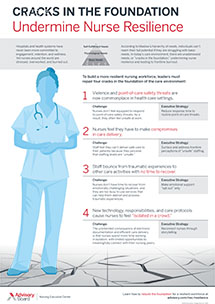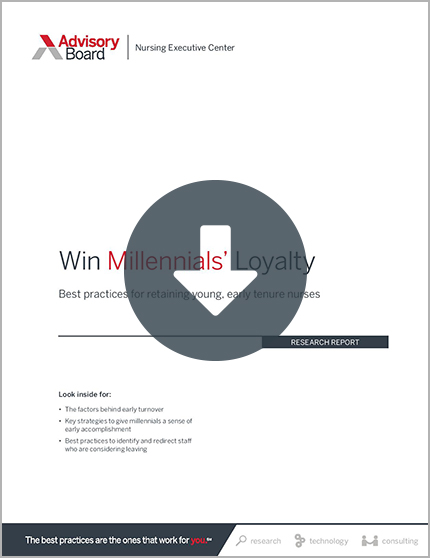Auto logout in seconds.
Continue LogoutEditor's note: This popular story from the Daily Briefing's archives was republished on Jan. 22, 2019.
Twenty years ago, Angela Gibson, then a nurse at UW Hospital, found herself caring for patients who had been severely burned in a violent attack—and the experience inspired her to become a surgeon and a researcher searching for a way to preserve more of burn patients' skin, David Wahlberg writes for the Wisconsin State Journal.
March 6 webcon: How to re-recruit experienced RNs with a Return-to-Work program
The fire
On April 19, 1998, Gibson was four months into her nursing career at UW Hospital's burn unit when a bus fire sent six burn patients into her unit.
The fire had been started by a homeless man with paranoid schizophrenia. He poured gasoline on an engaged couple—Eric Nelson and Heather Gallagher—on a Madison Metro bus, and he then set them on fire, burning the couple, himself, and two other people on board. The homeless man, Salim Amara, later told a psychiatrists he had heard voices that he thought were coming from Nelson.
Gibson was the newest nurse in the unit and was assigned to care for Amara, who suffered burns covering about 20% of his skin. "It was one of those tests of your internal ethics—being able to shut down what you know happened and just take care of the patient," Gibson said.
Gibson later cared for the engaged couple, who were much more severely burned. Nelson, then 29, was burned on 97% of his body, while Gallagher, then 24, was burned on 87% of hers.
Treatment took months and involved the often-painful process of cleaning wounds and replacing bandages. During that time, Gibson got to know the couple very well.
After spending nearly a year in the hospital, the couple was married on a cruise ship in Miami, and Gibson was a bridesmaid.
Where Gibson is now
After the incident, Gibson realized that she was passionate about treating burns. "When everything settled down, I realized I still yearned for that continual high intensity," Gibson said.
Now, after 14 years of school and residency, two kids, and an M.D.-Ph.D., Gibson is a burn surgeon and researcher at the University of Wisconsin.
A major burn "is the most stressful thing your body can go through," Gibson said. "All of your organ systems are involved. Your largest organ, your skin, is completely visible, and you can watch it heal." In Gibson's lab, she studies skin samples from burn patients in hopes of finding a way to preserve enough healthy cells from dead skin tissue to allow surgeons to remove less skin from their patients. "I think we often remove too much [tissue], just to be safe," she said. "If we could take less … and let the wound heal on its own, the patient wouldn't have to have a whole other wound."
Gibson said that caring for burn patients has helped her see just how deep the emotional scars of the trauma run. "Burn survivors are always burn survivors," she said. "They carry that trauma with them for their lifetime" (Wahlberg, Wisconsin State Journal/U.S. News & World Report, 4/21).
Millennial nurses are a third of our workforce—here’s how to retain them
In 2016, millennials surpassed Baby Boomers as the largest living generation in the United States. As more millennials have entered the nursing workforce, health care leaders have confronted a growing challenge: young nurses are turning over at higher rates than their older peers, especially early in their careers.
Use the strategies and best practices in this study to build a millennial-specific retention strategy for your organization.
Don't miss out on the latest Advisory Board insights
Create your free account to access 1 resource, including the latest research and webinars.
Want access without creating an account?
You have 1 free members-only resource remaining this month.
1 free members-only resources remaining
1 free members-only resources remaining
You've reached your limit of free insights
Become a member to access all of Advisory Board's resources, events, and experts
Never miss out on the latest innovative health care content tailored to you.
Benefits include:
You've reached your limit of free insights
Become a member to access all of Advisory Board's resources, events, and experts
Never miss out on the latest innovative health care content tailored to you.
Benefits include:
This content is available through your Curated Research partnership with Advisory Board. Click on ‘view this resource’ to read the full piece
Email ask@advisory.com to learn more
Click on ‘Become a Member’ to learn about the benefits of a Full-Access partnership with Advisory Board
Never miss out on the latest innovative health care content tailored to you.
Benefits Include:
This is for members only. Learn more.
Click on ‘Become a Member’ to learn about the benefits of a Full-Access partnership with Advisory Board
Never miss out on the latest innovative health care content tailored to you.


